Faithful Men School of Pastoral Training

We are very thankful to the Lord for the many fine Bible colleges and Seminaries that exist to equip men to be pastors and missionaries. Yet we also believe that the local church has an irreplaceable role to play in training men for the gospel ministry. This conviction is based upon two primary verses from the pastoral epistles:
“And the things that you have heard from me among many witnesses, commit these to faithful men who will be able to teach others also.” (2 Timothy 2:2, emphasis added).
“…holding fast the faithful word as he has been taught that he may be able, by sound doctrine, both to exhort and convict those who contradict.” (Titus 1:9, emphasis added).
These verses set forth a vision for mentoring men for the gospel ministry, so that the baton of God’s unchanging truth is passed from one generation to another. Paul (the first generation) instructed Timothy (the second generation), who was serving in a pastoral role in the church at Ephesus, to pass on to faithful men (the third generation) what he had learned from Paul so that they, in turn, could teach others (the fourth generation). Paul’s exhortation to Titus tells him to install men who are fitted and qualified by the Holy Spirit into the eldership. These men are to be among those who have been taught how to hold fast to the written Word of God. In the context of the first century, they would have had to have been taught inside of the local church, for there were no seminaries or Bible colleges to train them.
These passages set forth the New Testament model for each and every local church. Indeed, this is an essential vision that must be embraced by church-planters whether domestic or foreign. Church planters must labor not only in evangelism and discipleship, but they must also mentor faithful men until the Lord raises up indigenous elders within the churches they plant until they are self-governing, self-supporting, and self-propagating. But where will missionaries and church planters learn to do this if they have not seen it modeled within their own sending church?
Because of these convictions we have developed The Faithful Men School of Pastoral Training in which qualified students are mentored and trained for the gospel ministry. The goals of the Faithful Men School are as follows:
1. To help faithful men recover the Old Paths believed and proclaimed by our protestant forefathers so that they might walk in them experientially and preach these old truths with fresh Holy Spirit power to this and the next generation (Jer. 6:16; 1 Tim. 6:20-21; 2 Tim. 1:13-14; Jude 3-4).
2. To equip faithful men with the Biblical, theological, confessional, and historical literacy necessary to serve in the gospel ministry.
3. To incorporate Biblical and confessional missiology as an integral (rather than as a supplemental) part of all these disciplines.
4. To bring glory to God through the sanctification and equipping of faithful men, and the dispersion of the gospel into all the world. We desire for the Lord to raise up Bible teachers, gifted brothers, and elders to minister within our own church. As the Lord builds up our own church with a plurality of biblically qualified men, our prayer is that we will one day be able to send out men two by two to plant sister churches, both domestic and foreign.
5. To teach these courses and/or portions of them to sister churches within our own state, country, and/or other nations as the Lord may give opportunity.
The training consists of five labor intensive modules taught over the course of a 3 1/2 year period. The five courses are:
I. Fulfilling the Great Commission: Theology, Evangelism, and World Missions
II. Desiring a Good Work: Pastoral Calling, Life, and Ministry
III. Recovering the Old Paths: An Exposition of the Second London Baptist Confession of Faith (1677/89)
IV. Rightly Dividing the Word of Truth: An Introduction to God-Centered Hermeneutics.
V. Preach the Word! An Introduction to God-Centered Homiletics
